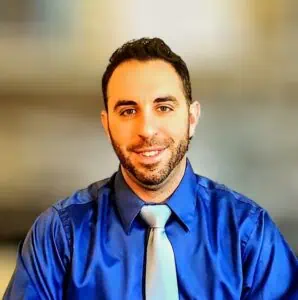Over the years, we have helped many people in Pittsburgh that have either needed to sell their house while they were in a probate situation or after they had already inherited the property. I first learned about the probate process when, my father unfortunately passed away suddenly in a motorcycle accident. He was 48.
He had a wife, 2 kids, cars, motorcycles, insurances, retirement accounts, real estate….and no will. You see, he hadn’t learned much about asset protection through out his life, and had never expected to pass so early…so his estate was sent directly to probate. Within hours after his passing I was getting phone calls from the hospital, insurance companies, the funeral home, the cemetery, hundreds of friends and family, and attorneys…it was extremely overwhelming to say the least.
Luckily, because I had just started out in real estate I had made a few relationships with attorneys in Pittsburgh. They were my first call, and they explained the process to me in a way I could understand.They let me know what would happen over the next 12-18 months and I hope that this basic outline helps you as well.
1. The attorney will file a petition for probate to the local probate court (orphans court too). This asks for appointment of an executor. If there is no will, then the court notifies all heirs and beneficiaries.
2. A representative of the estate is appointed – known as an administrator/administratrix or executor/executrix. This is a personal representative of the estate that then has to gather all of the estate’s assets have them appraised, gather all of the debts, pay the bills and taxes, and then distribute remaining assets to any heirs.
3. The court send “Letters Testamentary” – which gives the executor the legal authority to act on behalf of the estate. At this time, there is a notice of the probate published in a local paper. From this time, all creditors have one year to file a claim against the estate.
4. Once these items were complete, the attorneys told us to gather all of my father’s assets. We had 9 months to list all of his assets for the court after the executor was appointed.
Gathering his assets was, for the most part, an easy task. We tallied up everything he had….but the one thing we couldn’t decide what to do with, was his property.And over the years I’ve found that this is pretty typical amongst estates. Sometimes it is a simple decision to either keep the house or to sell but it can be much more complicated.However you decide to sell the house, the process remains the same. You can either sell your probate house using a licensed real estate agent, or you can sell directly to investors. What happens no matter what – and this is for the estate’s protection – is that the house gets an as-is appraisal from an independent appraiser.This happens because, no matter what, there will be value disputes. Once the appraisal happens, an asset value is established, and now you can decide what you want to do with the property. If you decide to sell your probate house, the court will typically approve a sale of 90% of the appraised value.
You have two options once the decision is made to sell. If you use a licensed real estate agent you know you are going the traditional sales route. If you read my blog titled “Selling Your House Traditionally Vs To An Investor” (link here), you would find that this process is often longer and more challenging. The traditional sales route usually comes with with inspections and financing contingencies as well. All this does is lengthen the probate process, which, from experience already seems long enough.
Your second option, of course is to sell to a cash investor. We have found that our probate sales process is much easier. Because we buy properties as-is with no inspections or financing involved, we can close in as little as 21 days. This will allow you to settle your estate much faster. We have helped many people that are in the same situation, because of our personal experiences with probate. We are not attorneys and can not give legal advice, but we can purchase your Pittsburgh probate property for all cash in as little as 21 days.
5. Once all assets have been gathered, all creditors and taxes must be paid.In Pennsylvania, because there are inheritance taxes to be paid – the attorney held back estimated amounts to be paid after the settling of the probate.
6. The attorney will then file a petition to close the probate.This must be approved by the state.
7. The court will issue an Order and all assets will be distributed to the heirs.Once everything is approved, the remaining monies will be distributed less attorney fees.
Our estate was, luckily, a pretty easy one to settle. I have seen some easy ones and I have seen some very challenging ones. It seems to always come to “what do we do with the house?” Feel free to give us a call and we can schedule an appointment to make you a cash offer. Our simple process really is as easy as 1-2-3.









